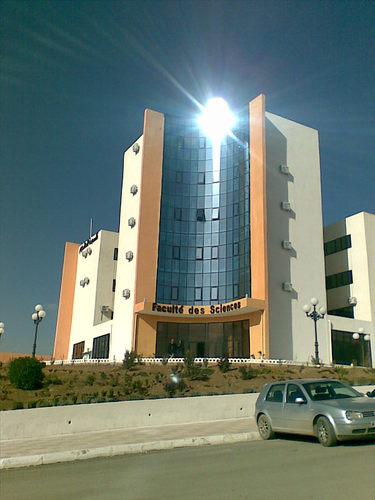|
| Titre : |
Deep learning model for predicting cancer stage based on genomic data |
| Type de document : |
texte imprimÃĐ |
| Auteurs : |
Rayane Mesnata ; Roumaissa Laouarem ; Abderrahim Lakehal, Directeur de thÃĻse |
| Editeur : |
Setif:UFA |
| AnnÃĐe de publication : |
2023 |
| Importance : |
1 vol (134 f.) |
| Format : |
29 cm |
| Langues : |
Français (fre) |
| CatÃĐgories : |
ThÃĻses & MÃĐmoires:Informatique
|
| Mots-clÃĐs : |
Bio-Informatics Cancer Machine learning Deep learning mRNA data Cbioportal, |
| Index. dÃĐcimale : |
004 Informatique |
| RÃĐsumÃĐ : |
This abstract discusses the integration of artificial intelligence (AI) and deep learning (DL) in cancer
diagnosis and treatment. It emphasizes the use of genomic sequencing technologies and machine
learning techniques to predict cancer stage and identify molecular signatures associated with different
stages. The Cancer Genome Atlas (TCGA) project has played a crucial role in collecting comprehensive
genomic data for various cancer types. the study highlights the importance of data preprocessing,
including quality control, normalization, and integration, to ensure the accuracy and reliability of the
predictive model. The performance of the deep learning model is evaluated using appropriate evaluation
metrics, such as accuracy, precision, recall, and F1 score; As Gene filtering techniques are used
to reduce noise and dimensionality, identifying relevant genes for cancer progression and stage.
This study develops a deep learning model for predicting cancer stage based on genomic data;
As the model incorporates a Convolutional Neural Network (CNN) architecture and is trained on a
comprehensive dataset, to evaluate the performance of the deep learning model, two approaches are
compared: utilizing the cbioportal platform and applying feature selection techniques. The cbioportal
platform allows for the exploration and analysis of cancer genomics data, providing valuable insights
into potential biomarkers and cancer biology. On the other hand, feature selection techniques aim to
identify the most informative genes or features for cancer stage prediction.
In conclusion, the experimental results demonstrate that the deep learning model, utilizing the
cbioportal platform, outperforms feature selection techniques in accurately predicting cancer stage;
As The modelâs ability to automatically learn complex patterns and interactions from genomic data
contributes to its superior performance. These findings underscore the potential of deep learning in
advancing cancer diagnosis and treatment planning. |
| Côte titre : |
MAI/0763 |
| En ligne : |
https://drive.google.com/file/d/1zJ5Z2D54pTWUGV0dC7gU78uObVf0nEvc/view?usp=drive [...] |
| Format de la ressource ÃĐlectronique : |
pdf |
Deep learning model for predicting cancer stage based on genomic data [texte imprimÃĐ] / Rayane Mesnata ; Roumaissa Laouarem ; Abderrahim Lakehal, Directeur de thÃĻse . - [S.l.] : Setif:UFA, 2023 . - 1 vol (134 f.) ; 29 cm. Langues : Français ( fre)
| CatÃĐgories : |
ThÃĻses & MÃĐmoires:Informatique
|
| Mots-clÃĐs : |
Bio-Informatics Cancer Machine learning Deep learning mRNA data Cbioportal, |
| Index. dÃĐcimale : |
004 Informatique |
| RÃĐsumÃĐ : |
This abstract discusses the integration of artificial intelligence (AI) and deep learning (DL) in cancer
diagnosis and treatment. It emphasizes the use of genomic sequencing technologies and machine
learning techniques to predict cancer stage and identify molecular signatures associated with different
stages. The Cancer Genome Atlas (TCGA) project has played a crucial role in collecting comprehensive
genomic data for various cancer types. the study highlights the importance of data preprocessing,
including quality control, normalization, and integration, to ensure the accuracy and reliability of the
predictive model. The performance of the deep learning model is evaluated using appropriate evaluation
metrics, such as accuracy, precision, recall, and F1 score; As Gene filtering techniques are used
to reduce noise and dimensionality, identifying relevant genes for cancer progression and stage.
This study develops a deep learning model for predicting cancer stage based on genomic data;
As the model incorporates a Convolutional Neural Network (CNN) architecture and is trained on a
comprehensive dataset, to evaluate the performance of the deep learning model, two approaches are
compared: utilizing the cbioportal platform and applying feature selection techniques. The cbioportal
platform allows for the exploration and analysis of cancer genomics data, providing valuable insights
into potential biomarkers and cancer biology. On the other hand, feature selection techniques aim to
identify the most informative genes or features for cancer stage prediction.
In conclusion, the experimental results demonstrate that the deep learning model, utilizing the
cbioportal platform, outperforms feature selection techniques in accurately predicting cancer stage;
As The modelâs ability to automatically learn complex patterns and interactions from genomic data
contributes to its superior performance. These findings underscore the potential of deep learning in
advancing cancer diagnosis and treatment planning. |
| Côte titre : |
MAI/0763 |
| En ligne : |
https://drive.google.com/file/d/1zJ5Z2D54pTWUGV0dC7gU78uObVf0nEvc/view?usp=drive [...] |
| Format de la ressource ÃĐlectronique : |
pdf |
|


 Ajouter le rÃĐsultat dans votre panier Affiner la recherche
Ajouter le rÃĐsultat dans votre panier Affiner la recherche

